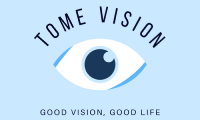Debunking Common Myths About Wearing Glasses
Good vision is essential for our overall well-being, and for many people, that means wearing glasses. However, there are several misconceptions and myths surrounding glasses that can cause confusion and unnecessary worry. In this article, we aim to debunk some of these common myths, providing accurate information about wearing glasses and promoting a more informed approach to eye health.
Subheading 1: “Wearing glasses weakens your eyesight”
One prevailing myth is that wearing glasses actually weakens your eyesight over time. This is far from the truth. Glasses are prescribed to correct refractive errors, such as myopia (nearsightedness), hyperopia (farsightedness), astigmatism, or presbyopia. They work by bending light entering the eye so that it properly focuses on the retina, resulting in clearer vision.
Without glasses, individuals with refractive errors may experience blurred vision, eye strain, headaches, or other discomforts. By wearing glasses, these symptoms are relieved, allowing the eyes to rest and function optimally.
Wearing glasses does not change the structure or strength of your eyes. It simply provides the necessary corrections for clear vision. In fact, neglecting to wear glasses when needed can worsen eye strain and potentially cause other eye health issues. Therefore, it is important to wear glasses as prescribed by an eye care professional and have regular eye exams to ensure your prescription is up to date.
Subheading 2: “Wearing glasses makes your eyes dependent on them”
Another common myth surrounding glasses is that they make your eyes dependent on them. People often worry that if they start wearing glasses, their eyes will become reliant on them, requiring stronger prescriptions in the future.
However, this is not the case. Wearing glasses allows your eyes to experience clear vision, reducing strain and promoting better eye health. Your eyes do not become dependent on glasses; rather, they rely on them to provide clear vision. If your prescription does need to be adjusted over time, it is due to the natural changes in your eyesight, not because your eyes have become dependent on glasses.
If you have been prescribed glasses, it is prudent to wear them consistently, especially in situations that require clear vision, such as driving or reading. Wearing glasses as prescribed will not result in any negative consequences for your eyesight.
Lastly, let’s take a look at some key points in a bullet list format:
– Glasses do not weaken your eyesight; they correct refractive errors, providing clearer vision.
– Neglecting to wear glasses when needed can worsen eye strain and potentially lead to other eye health issues.
– Wearing glasses makes your eyes reliant on them for clear vision, but it does not weaken or damage your eyes.
– Your eyes may require prescription adjustments over time due to natural changes, not dependence on glasses.
– Consistently wearing glasses as prescribed promotes better eye health and can prevent further vision problems.
As with any health-related concerns, it is essential to consult with an eye care professional for accurate information and guidance. By debunking these common myths and understanding the true benefits of wearing glasses, we can ensure optimal eye health and well-being.
